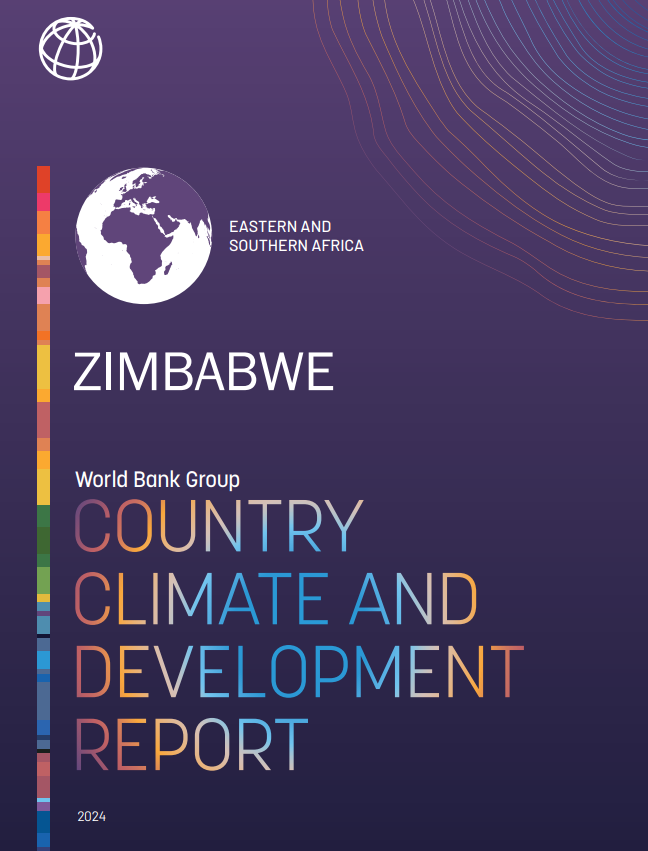Zimbabwe Country Climate and Development Report

This report is a Country Climate and Development Report (CCDR) focusing on Zimbabwe. It highlights Zimbabwe's status as a lower middle-income country with abundant natural resources and growth potential. However, it also points out the significant challenges Zimbabwe faces due to climate change, which severely limits its ability to address these challenges effectively.
Key points mentioned in the report include:
- Climate Vulnerability: Zimbabwe is highly exposed to climate change, which impacts its ability to sustainably develop. This vulnerability is exacerbated by various factors such as macroeconomic constraints, deindustrialization, and land reform.
- Economic Dependency: The report notes that Zimbabwean citizens increasingly rely on emergency relief rather than a formal government safety net. This suggests a lack of resilience in the face of climate-related challenges.
- Macroeconomic Constraints: The country's macroeconomic challenges create a "double bind" situation. Zimbabwe struggles to finance development, climate adaptation, and mitigation efforts, which leads to increased land degradation, higher emissions, and reduced resilience.
- Path Forward: The report suggests a potential solution to this double bind by leveraging Zimbabwe's significant reserves of energy transition minerals (ETMs), such as lithium required for electric vehicles. By linking demand from global green value chains to these resources, Zimbabwe could:
- Enable both public and private sectors to invest in resilient, low-carbon development.
- Finance capital accumulation for supporting large-scale land restoration and increasing agricultural productivity.
- Expand resilience-building social safety nets to protect vulnerable populations from cyclical weather shocks.
Overall, the report proposes a strategy that integrates economic development, climate resilience, and social protection measures, emphasizing the importance of leveraging Zimbabwe's natural resources in a sustainable manner to address its climate and development challenges.
Abstract based directly on source.


Comments